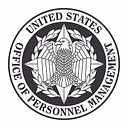OPM Director Kiran Ahuja’s pay equity remarks, as delivered at the White House, on Equal Pay Day 2022:
Income inequality impacts every woman and every family, and has a larger economic cost to our country. But closing the pay gap is about more than just economic progress or fairness — it’s a moral imperative.
These gaps are an affront to our values as a nation and go against the notion that every worker’s contribution to this country’s social and economic progress is equally valued, no matter their gender or background. I speak from personal experience, leading an Asian American women’s organization that fought for equal pay for Asian American and Pacific Islander women, many of whom — especially Southeast Asian, Filipino, and Pacific Islander — are concentrated in domestic and caregiver roles.
The federal government can and must lead by example and be a model employer. The gender pay gap for federal employees is just below six percent and shrinking, compared to 17 percent nationwide. Any gap is unacceptable, but we’re headed in the right direction.
For the second straight year, there is no gender pay gap in the Senior Executive Service, the most senior career positions in government. We are proud of that fact, and we are driven to make progress in other key ways — for instance by increasing the number of women SES overall from 38 percent, and ensuring the program truly draws from the full diversity of the American people. In fact, in 2021, more than half of individuals hired into our Senior Executive Service were women, so we are on the right track. The federal pay system is more transparent than other systems and includes more information in its job announcements like salary ranges. It also has narrower, defined pay ranges for starting salaries. All of these factors advance pay equity and transparency.
But we know there is still more work to be done — the federal pay gap has been built up over decades, and it will take time to eliminate. OPM is proud to work with our partners across the Biden-Harris Administration to advance equity and close the pay gap once and for all. We’re collaborating with agencies to evaluate HR practices. We’re implementing pay discrimination prevention tools in line with President Biden’s Executive Order to promote Diversity, Equity, Inclusion, and Accessibility in the federal workforce. And in the coming year, we’re planning to propose changes to our regulations that address the use of prior salary history in the hiring and pay setting process.
I’m humbled to have my own place in this progress as the first Asian American woman, and first South Asian woman to lead OPM. And I’m proud to stand with you all today as we forge a path for more female leaders to rise and receive every dime they earn in the workplace.
Kiran Ahuja serves as Director of the U.S. Office of Personnel Management
